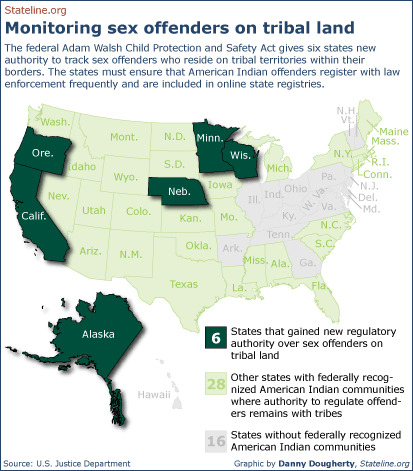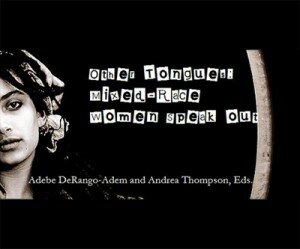God complex: Indian victimhood and the liberals who love it part 1
Featured — By Gyasi Ross on February 3, 2010 at 12:20“Give me your tired, your poor, your huddled masses yearning to breathe free, the wretched refuse of your teeming shore.”
The Statue Of Liberty.
And Native Americans.
My dude, Nish Chad, brought up an interesting theory to me. Bringing up interesting thoughts to me is not unusual, mind you, since Chad’s somewhat of a conspiracy theorist.
Follow this: Ever since contact, we Natives have never done too good of a job regulating the non-Natives within our communities. The facts show that we allow everyone into our communities and willingly invite outsiders into our reindeer games—even when the people who want to play our reindeer games have been ostracized from virtually all other parts of society.
Europe doesn’t want you anymore? No problem.
The military doesn’t want you anymore? We’ll take you.
White folks don’t want you anymore? We’ll take you.
Listed as a sexual offender? We’ll still take you.
Think about it. It’s rarely the exemplary or successful non-Native folks who find refuge amongst us. Every once in a GREAT while, we get a non-Native who has it together–the occasional white millionaire or Doctor who leaves the hustle and bustle of the big city to come live with us–but that’s rare. Instead, it’s usually the odd, rejected, smelly, sex offender and/or really really hippie non-Native folks who we accept to come live within our communities. They figure, “I flunked out of “mainstream society”—perhaps these egalitarian Native people will accept me.”
And unfortunately most of the time we do.
Sometimes we even allow these oddball non-Natives to have a greater voice than our own people—greater than the very Natives who live and work for Native people. Those non-Natives want to be important to the Native community—they want to save the Native community so badly they assign themselves a greater voice than the very citizens of that community.
But I digress.
Back to Chad.
See, Nish Chad—amazing business man and hustler supreme—emailed me one day to talk about the historic trauma amongst Natives. He pointed out that the majority of the people who like to exercise the “intergenerational trauma” card for Native people are not Natives but, instead, White people who want to be accepted in Native communities. Think about it: you rarely hear Native people excuse the few young Native knuckleheads by saying that it’s “intergenerational trauma.” Native parents know that some Native kids are simply knuckleheads, just like some White kids, Black kids, Hispanic and Asian kids are knuckleheads.
Yet, according to Chad, White school administrators, academics and bloggers do not like to admit that some Native kids just simply mess up. So they present an all-encompassing excuse for Native kids—intergenerational trauma. He said, that when he talks to elderly Natives, or even most of us Natives who grew up within our own communities, those Natives want accountability, responsibility, and an end to all the excuses. They want Native kids to excel like they know that Native kids can. And to stop making excuses for them or lowering their expectations. Furthermore, older Natives know that as long as non-Natives keep making excuses for Native kids before the kids even get a chance to compete, the kids are going to believe the excuses. They’re going to feel that, “Yeah, I guess I do have trauma and shouldn’t be getting these good grades. I guess I should be angrier.”
Non-Natives love to tell us Natives what to do. They attempt to tell us what we should or should not expect from our own children. They attempt to tell us what should or should not offend us. Because, apparently, we’re not smart enough to know ourselves. Crazily, sometimes we even listen to those non-Native folks who tell us that we should lower our standards for our children, that we should find a convenient excuse to expect them not to do well in today’s society.
When I thought more about Chad’s pseudo-conspiracy theory I had to admit—it wasn’t even really a theory. In fact, I’ve seen this “white-folks-excusing-bad-behavior-within-Native-youth-who-ultimately-end-up-in-prison” phenomenon up close. I’ve also seen the destruction that it does within our communities. Perhaps not coincidentally, I’ve also seen many non-Native social workers, tribal police, lawyers and other professional gain employment within our communities—job opportunities that spring up as a direct result of the destruction that arises within our communities.
Hmmmmmmm….Instant work for a lot of non-Natives and job security as a result of excusing behavior?? Not a bad gig at all.
I see it myself. In my experience, Natives appreciate my perspective: that we Natives are 100% in control of our destiny and that we should never feel sorry for ourselves. Old Natives LOVE it when I say that our kids are accountable for their actions. Those elders understand that blaming others for their pain doesn’t accomplish anything. Young Natives love it when they feel that others aren’t making decisions for them. But I also get hate emails from a bunch of white educators who say that I’m blaming the victim, or that I’m being callous and mean. They do not appreciate the fact that MY personal definition of sovereignty begins and ends with Natives—it simply does not include non-Natives. They do not understand why I do not pander to an outdated “victim” image in the media, drunk and defeated. In my calculus, those “helpless” and “victim” images are outdated and untrue.
We are not victims. We are victors. We are still here–we’ve won just by surviving the Holocaust of the previous 500 years. And now, we must move beyond merely surviving to thriving. But those non-Natives who were welcomed into our communities attempt to tell us that we ARE helpless–that we need to stay stuck on “survival.”
Me? Like my buddy Chad, I feel that NO non-Natives should be able to question us Natives about something strictly intra-Native, like what we expect of our children. Sovereignty is 100% about making our own destiny–for better or for worse.
Hey—for what it’s worth (not a ton to me, but some folks need the validation of some old white folks), the Supreme Court said as much in Santa Clara Pueblo v. Martinez.
So does intergenerational trauma exist? Of course. It’s been proven. But it exists for many, many people–not just Natives. And just like the rest of those other “many, many people” who suffer intergenerational trauma, we Natives need to figure out a way to get out from under that shadow, otherwise subsequent generations will suffer and struggle with exactly the same issues as we do, because we were too busy playing victim. I guess the other point is that non-Natives who seek to excuse Native behavior use intergenerational trauma as an excuse for everything–bad grades, sexual deviancy, B.O., erectile dysfunction. If you’re Native and you don’t file your taxes on time, according to these people, intergenerational trauma is the reason.
The reason why? Who knows: White guilt? Or maybe, as shown above, to keep a job?
Still, I wonder about Chad’s larger point—why do these non-Natives always want to butt into our internal family business? Whether it’s the “shamanic,” eccentric hippie lady who feels the need to tell everyone about her distant Native heritage or the Preacher who wants to save all the Indians from brimstone, there are always outsiders who want to put their two cents into our internal business. Heck, I NEVER saw any Natives on “The Brady Bunch” telling Mike and Carol how to raise their kids.
Maybe that’s just a cultural difference? Or perhaps those non-Natives have an interest in making sure that Natives continue to feel like victims?
Tags: american indian, american indians, bureau of indian affairs, Children, Culture, Education, Indian country, native americansAuthor: Gyasi Ross (4 Articles)

Gyasi “Fancy Skin” Ross is a member of the Amskapipikuni (Blackfeet Nation) and his family also comes from the Suquamish Tribe. His Pikuni (Blackfoot) name is “Oonikoomsika.” He is co-founder of Native Speaks LLC, a progressive company owned by young Native professionals which provides consultation and instruction for professionals and companies. Gyasi is currently booking dates for his newest presentation, “Mother Lovers: Poetic (and Musical) Justice.”




 Share This
Share This Tweet This
Tweet This Digg This
Digg This Save to delicious
Save to delicious Stumble it
Stumble it





 Blanqueamiento: A poem by Adebe DeRango-Adem
Blanqueamiento: A poem by Adebe DeRango-Adem We invite the naysayers to join us in promoting unity
We invite the naysayers to join us in promoting unity








1 Comment